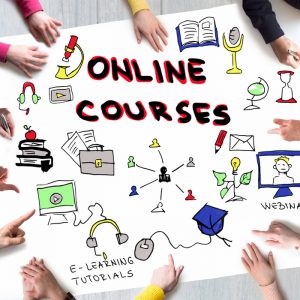
How Schools Can Market Online Programs to Boost Enrollment
4 Steps to Reach and Connect with Online Students
In 1892, the University of Chicago became the first American school to offer correspondence courses. Allowing students from all over the country to earn a degree completely over the mail, distance learning revolutionized the way people sought out education. And, today, we’ve come full circle.
Online programs have become the next and natural evolution of the correspondence course. Countless universities, colleges and educational institutions now offer fully online degrees, programs and courses, and momentum hasn’t slowed for this method of pursuing education. About one in four students are now taking at least one distance education course—that’s over six million students across the U.S.
Distance learning courses offer potential students accessibility, flexibility and affordability. But, before the first lesson can take place, schools need to reach and connect with students for whom this type of learning is ideal.
If your college, university or educational institution is offering online courses, keep reading for four steps to take to boost your program’s enrollment.
Target the Right Audience
Here’s a secret: marketing anything, from online courses to dog food or travel experiences, boils down to one thing—you have to know your audience.
Who is your ideal student? This is the first question to ask when outlining a marketing strategy for your institution’s programs.
And, identifying your audience doesn’t end with demographics. To reach the right people with the right message at the time they’re most likely to be receptive to it, you’ll need to know what your audience values, what motivates them to take action, the challenges they may be facing, their stage in life and more.
With these insights, you can tailor your content and advertising to resonate with your ideal students by sharing with them exactly what they need and want to hear.
Showcase the Value of Your Course
Again, the right messaging isn’t just about highlighting what makes your program great. It’s about what makes your program perfect for your specific audience.
Let’s say your online program is tailored towards a non-traditional student seeking a career change. Perhaps they are the head of their household, working a full-time job to provide for their family.
To this audience, your program’s online nature is key, as it means they’ll be able to study on their schedule. Affordability could also be a key value to highlight in your messaging, as online learning might be a considerable investment for your target students. Finally, the vision of a better future for your target student and their family might be the key decision maker for this audience, and something worth highlighting in your marketing.
Share Success Stories
Online programs come with an inherent promise—what students will gain by completing the curriculum. One way to showcase how your program will deliver on that promise is to share success stories from previous students.
Why? People trust people. In fact, 88% of people trust online reviews as much as personal recommendations.
Publishing real, honest testimonials shared by past students can tip the scales in your favor during your prospective students’ decision-making process. Plus, reviews and success stories can provide an institution-wide effect, adding value and credibility to your school’s brand.
If your program is brand new and hasn’t graduated any students yet, you can still take advantage of this approach by featuring stories and testimonials for your institution as a whole or other programs you offer.
Simplify Enrollment
Finally, you don’t want to lose potential students to a cumbersome enrollment process. Once learners have landed on your school’s website or, better yet, your course’s landing page, they should see clear calls to action on what comes next.
How does the application process work? Is enrollment instant or must they wait for a response? Can the entire process be handled online? How long does it take? These are all questions your potential students may be asking themselves. Be sure your site has answers.
Looking for more information on education marketing? Check out our blogs on LinkedIn for higher education institutions and experiential marketing opportunities on your campus.